Chabad Emissary in Mumbai: "Hospitals Are Collapsing, People Are Dying in Ambulances"
Israel Kozlovsky and his family have been on a mission in Mumbai for the past nine years, but now they feel the challenge is greater than ever due to the rampant spread of COVID-19. "Those who don't know India can't grasp the magnitude of the tragedy; there are hundreds of thousands of victims here."
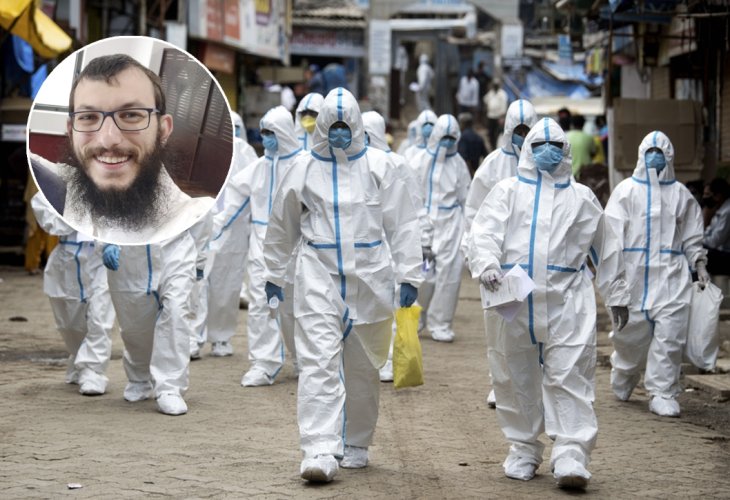 In the circle: Israel Kozlovsky (photo: shutterstock)
In the circle: Israel Kozlovsky (photo: shutterstock)While Israel has almost entirely departed from the COVID-19 pandemic, India has become a world leader in virus infections. Recent reports indicate that the number of infections has risen to 24.34 million, with the death toll reaching 254,197. "No one feels that we are seeing the end here," says Israel Kozlovsky, Chabad emissary in Mumbai, speaking to 'Hidabroot'. "On the contrary, there are constant discussions about how our COVID wave might only worsen. There are rumors that the actual numbers of sick and deceased are much higher than reported, possibly even tenfold."
The fear is immense, and as a Chabad emissary who is aware of the situation and warns the Jewish community, he says, "It is clear to all of us that hospitals have no capacity to handle additional patients – we have no beds or oxygen, and many people die in ambulances or while waiting for hospitalization. The collapse is total."
The city of Mumbai, where he resides, is considered India's economic capital. "But currently, there is also a major economic collapse," Kozlovsky notes. "The situation is terrible. Those who are not here cannot even imagine."
Milkman, Chazan, and Gravedigger
Throughout the conversation with Kozlovsky, the sounds of chickens clucking are heard in the background. "We're right in the middle of slaughter," he casually says. "We started yesterday, we're continuing today, and by evening we expect to have 200 kosher chickens for the entire community."
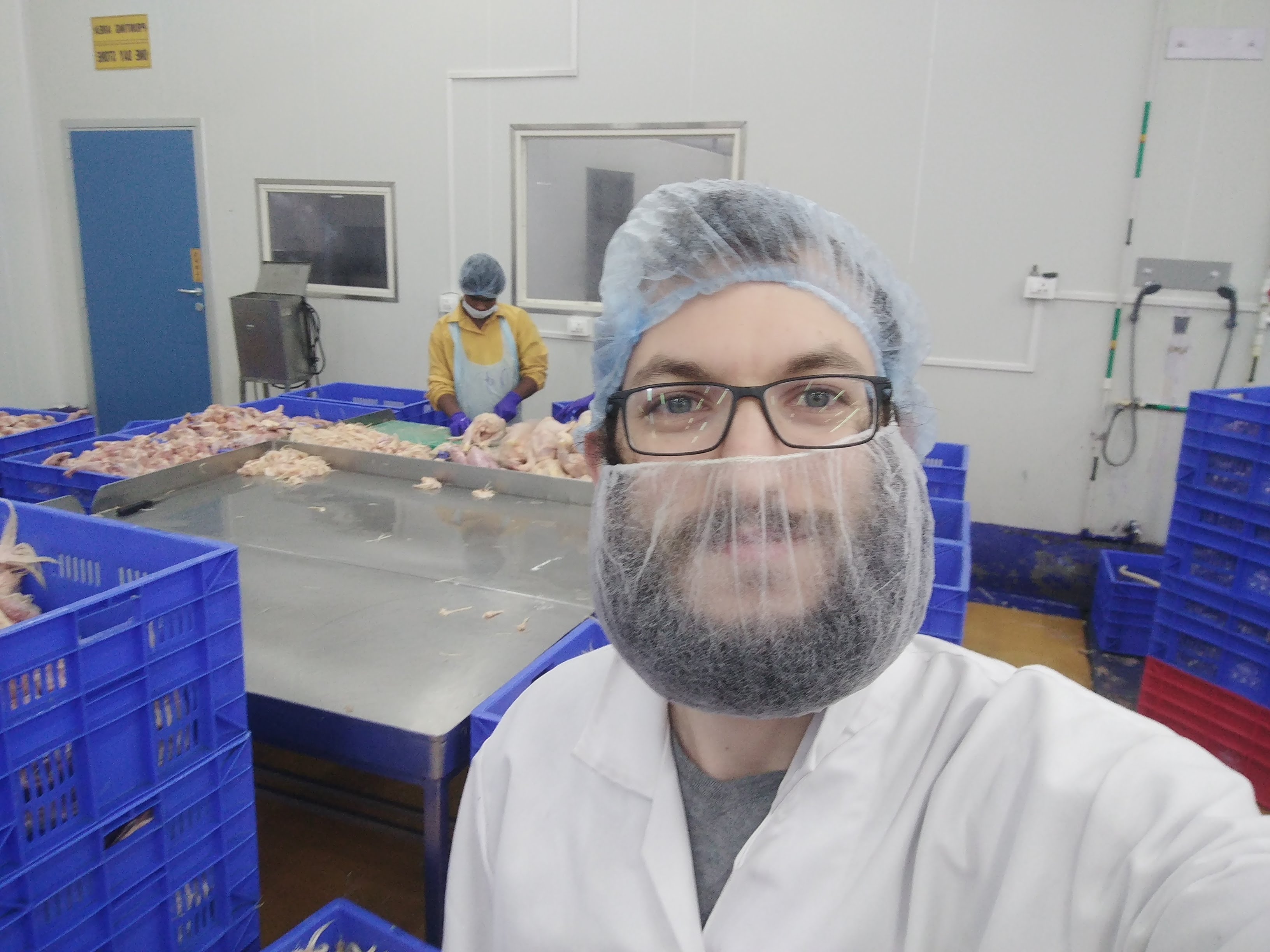
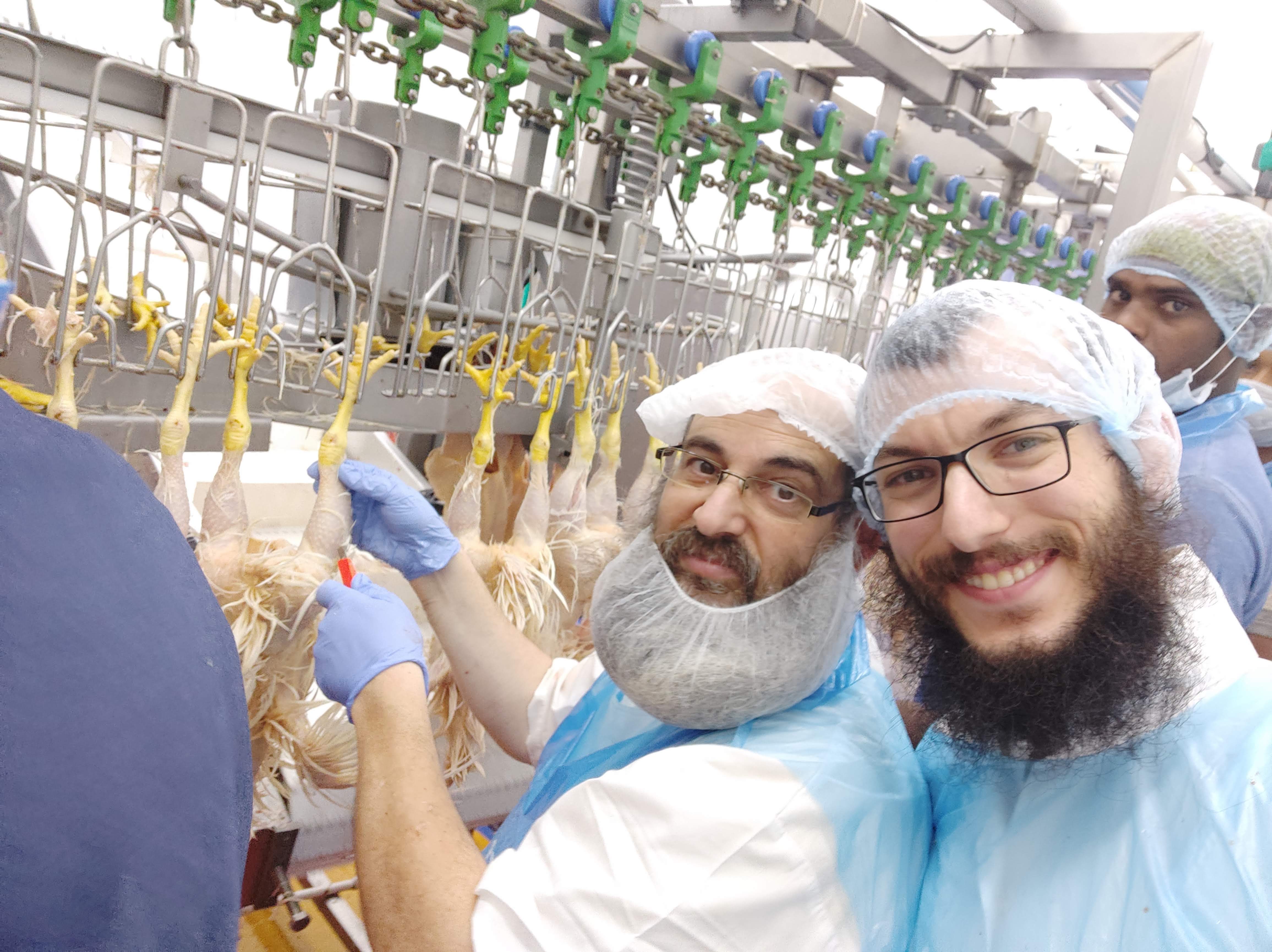
When he finishes with the slaughter, he will move on to milking the cows. "Next week is Shavuot, and we need to prepare with a sufficient amount of milk," he explains.
For him, engaging in milking and slaughter is part of life. As a Chabad emissary in a city with no Jewish infrastructure, Kozlovsky finds himself having to serve in various roles simultaneously. "I'm not just a slaughterer and milkman, but also a chazan, accompany patients in hospitals, and a member of the Chevra Kadisha when needed. We do not have an abundance of Jewish manpower, so we must do everything ourselves, especially now when we have no aid staff that can come from the country."
Living in Mumbai for the past nine years with his wife and six children brings him many challenges, but now, with the rapid spread of COVID-19 in the country, he faces challenges he never imagined.
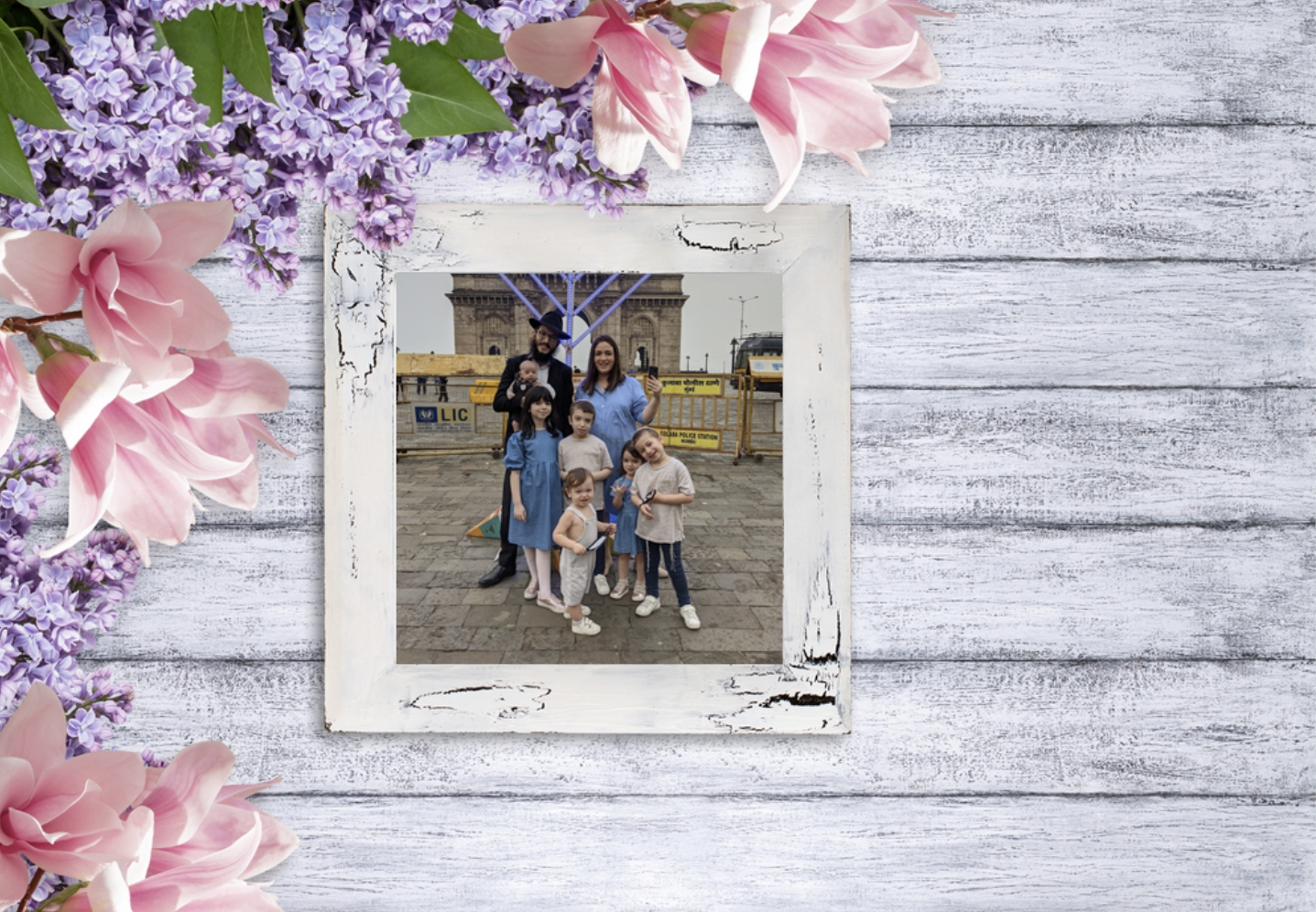 Israel Kozlovsky and his family
Israel Kozlovsky and his family In fact, the Kozlovsky family fills the place of emissaries Gabi and Rivki Holtzberg, may Hashem avenge their blood, who were murdered in a horrific terrorist attack 14 years ago. After them, there were other emissaries for two and a half years, then the Kozlovskys arrived. "Our mission in Mumbai is threefold," he explains, "Until a year and a half ago, before COVID broke out, many tourists and travelers came to us mainly looking for a kosher restaurant, some also wanted minyan prayers. Additionally, there were Jewish businesspeople who regularly came, as well as the Jewish community living here, numbering about 3,000 Jews."
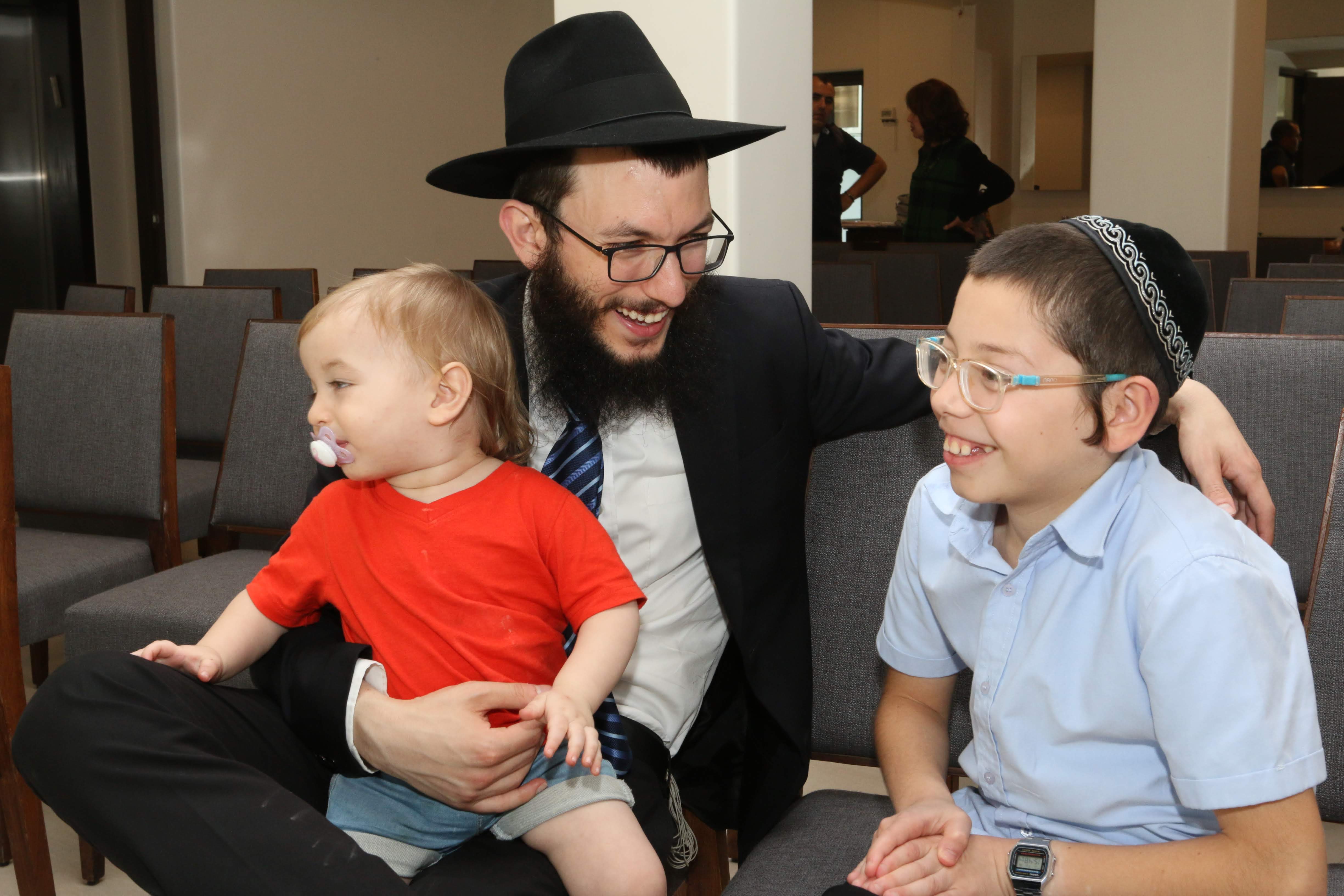
"We offer minyan prayers, hospitality, and assistance, a mikveh, hosting travelers, and Torah classes for men and women. But our true challenge is the educational framework. Because when we arrived, there were indeed schools belonging to Jewish associations, but they had almost no students because the education was not of a high level for parents to send their children there. So one of the first things we did in Mumbai was to open a school. As of today, the number of students ranges from 25 to 40, varying from year to year. Of course, our children also attend."
Beyond that, the couple organizes educational activities every Sunday and summer camps for kids, events for young people, and more. "We know that tourists coming to India and businesspeople first check the address of the Chabad House and the phone number of the restaurant. We are happy to be an embassy and consulate for any Jewish matter," he notes.
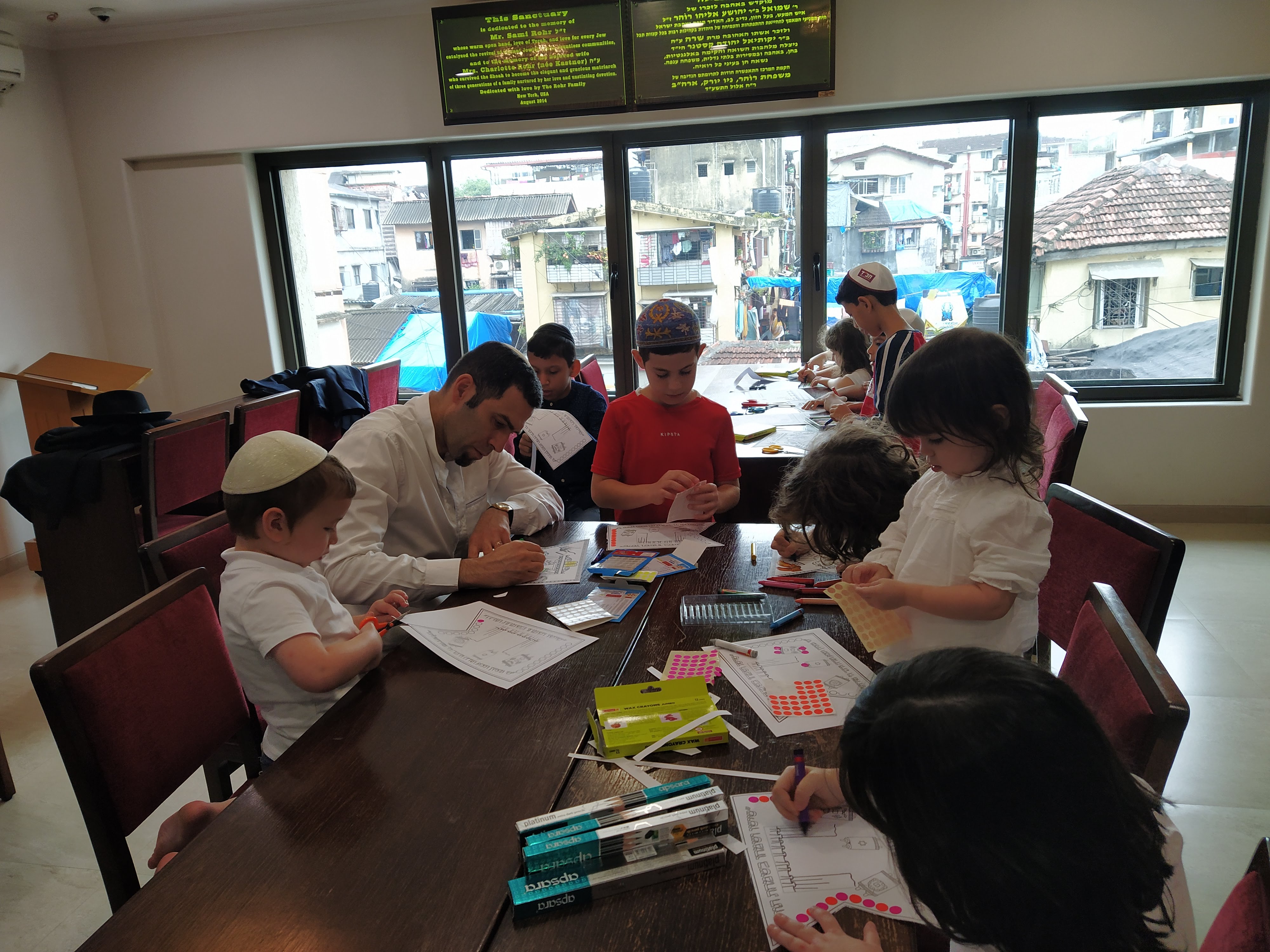
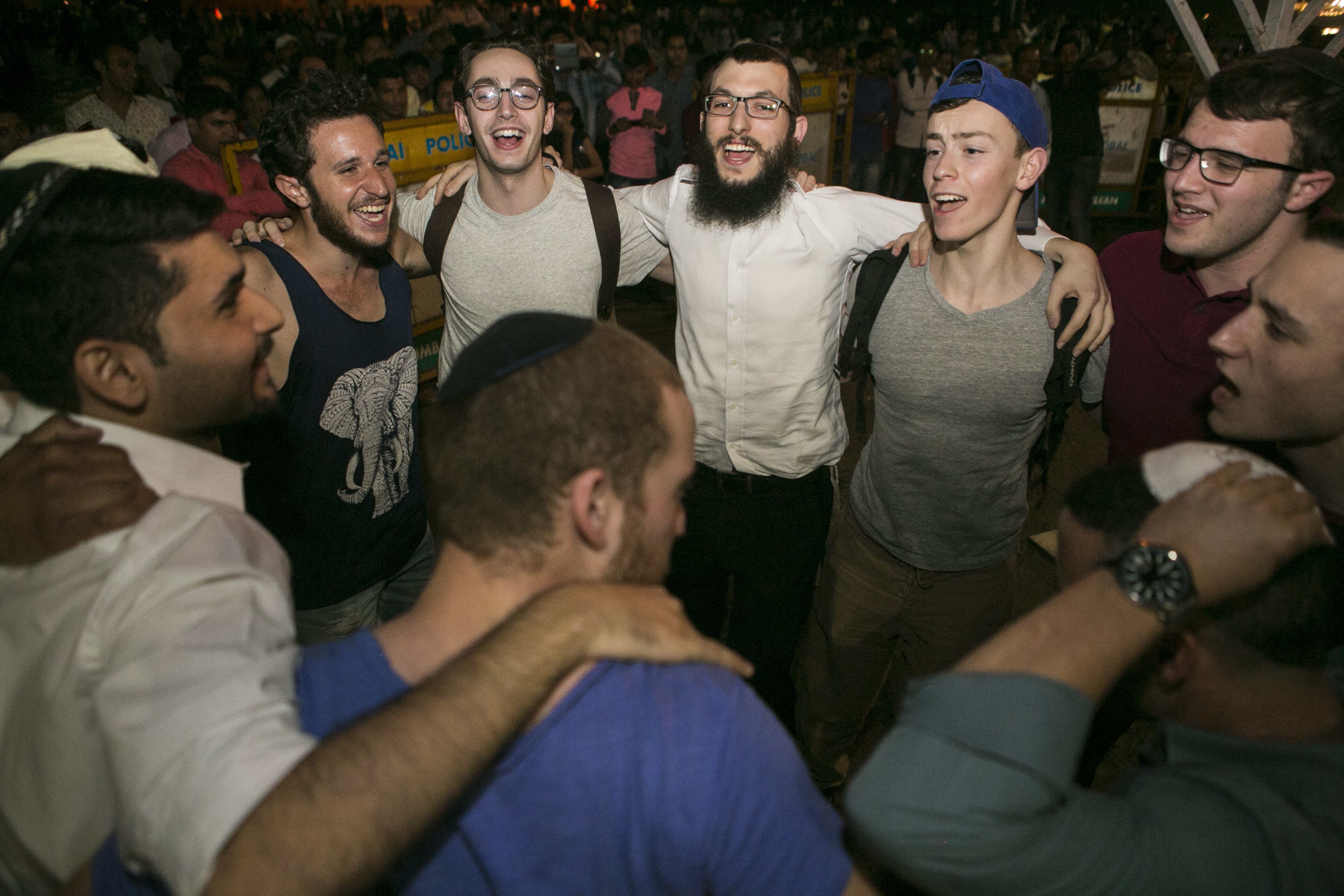
Missing Normality
However, as mentioned, these days their activities have changed beyond recognition. "First of all, we have to learn to make do with the bare minimum," says Kozlovsky. "During regular times, we were accustomed to having businesspeople who would come here from Israel and bring us suitcases full of food and kosher products. But in the past year and a half, there have been no flights at all, so we had to adapt to the new reality. It's not easy, but we're learning to produce everything ourselves. If there's no baking powder or cooking chocolate, then we make cakes from flour, sugar, and water. Even pizza can be made from scratch. My wife is an expert at it."
"Another thing we've had to give up in the past year is visiting Israel. Since we arrived here, we've made sure to take the kids once a year to Israel, to stay updated, meet, recharge, and of course to stock up on different products. It obviously didn’t happen last year, but by divine providence, we met with all the family members just before the pandemic. It was after many years of not meeting, as my brothers are on missions in various places around the world, and there is almost no chance of a family reunion of all of us. This time, with Hashem's help, it happened, and it gave us strength for the past year and a half, including the time when my wife gave birth, right during the busiest time at the Chabad House, in the middle of the COVID-19 outbreak."
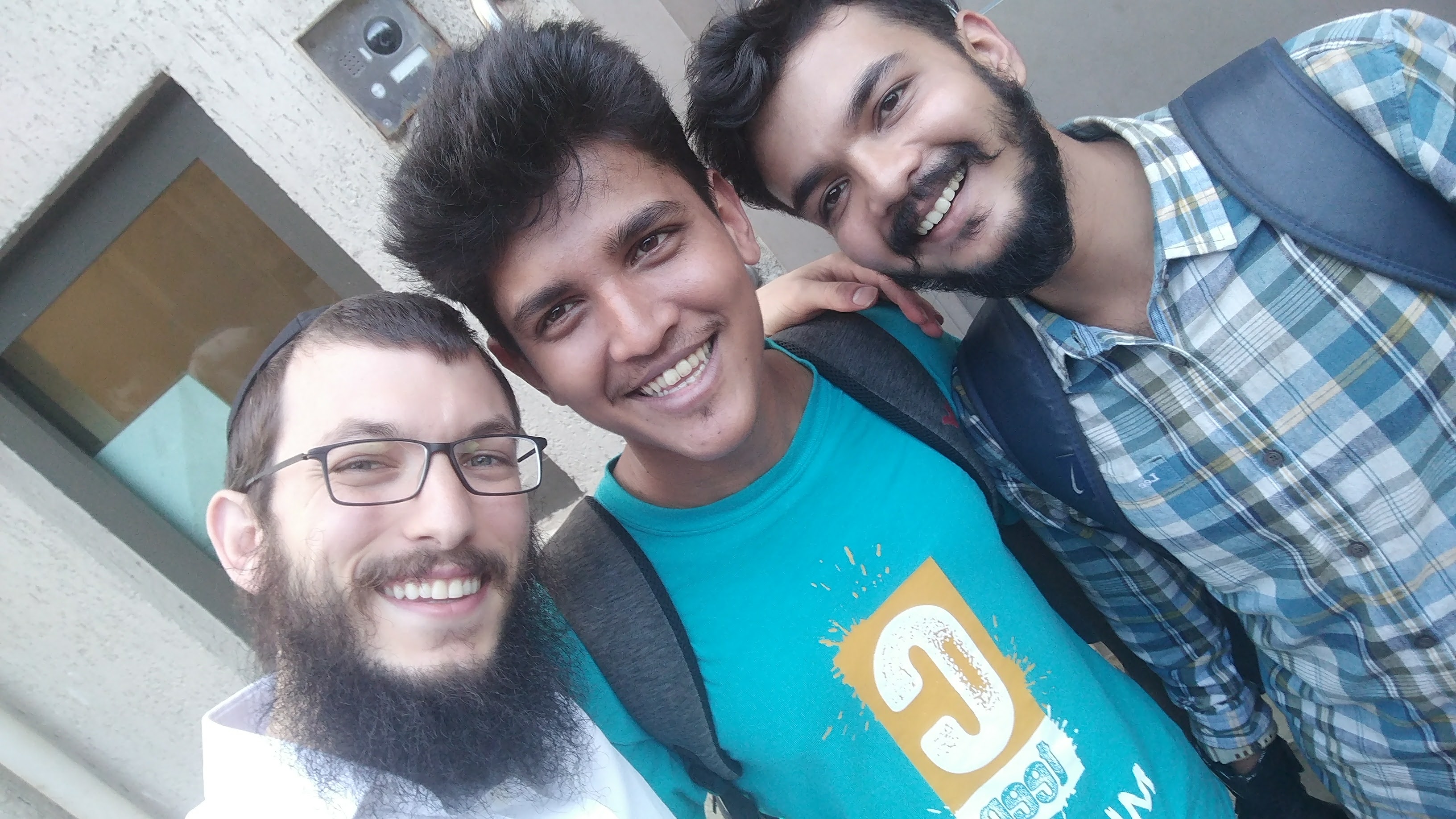
Is there a lockdown at your place these days?
Kozlovsky laughs sarcastically. "A lockdown? It's not even relevant because people here would not obey it. India is not a welfare state, so we don't receive child allowances or unemployment payments and national insurance benefits. People know that if they stay home without going to work, they will starve to death, so they prefer to risk catching the virus just to be able to bring home some more rice.
"In general," he adds, "Those who haven't been to India can't understand how it looks because the Western mind simply can't picture and accommodate it. India comprises various religions and is considered a federation of many states, all of which are deeply entrenched in abject poverty. When talking about poverty, it's not about 'Mom promised us chicken for Shabbat,' but a person goes to sleep without knowing what they'll eat tomorrow morning. Not to mention electricity or water, which are non-existent in many areas. Now take these conditions, add filth and minimal cleanliness, and think about what happens when there's a virus in the streets. It spreads like the wind."
So how do you deal with it?
"The truth is that we hardly felt the first waves of COVID-19. Even though we, as public figures, took responsibility and warned the people around us, everyone soon stopped paying attention to the warnings. People became sick, but it wasn't even a topic, and they continued doing everything as usual.
"However, now a new wave has come, with a mutation that's many times more contagious, and the numbers of sick and dead are endless. I try not to go outside, but wherever I do, there are signs on isolated COVID-19 wards, ambulances evacuating patients to already full hospitals that can't admit them; there's no respirators, no oxygen generators. This isn't just because our hospitals aren't developed, but because there is no developed country in the world that can handle numbers like we have here. I understand that the numbers speak of hundreds of thousands infected daily, and many thousands dying each day. Tourists haven't come here for a long time, nor businesspeople, as there are no flights. The prices of food products are soaring, and poverty is increasing day by day."
Are you afraid of getting infected?
"My wife already got sick in the first round of COVID-19. That was before giving birth, and we were very concerned, but thank Hashem, everything passed peacefully. I am indeed worried for myself and the kids, so we almost don't leave the house these days, but I have to go out for milking or slaughtering. There's no other choice."
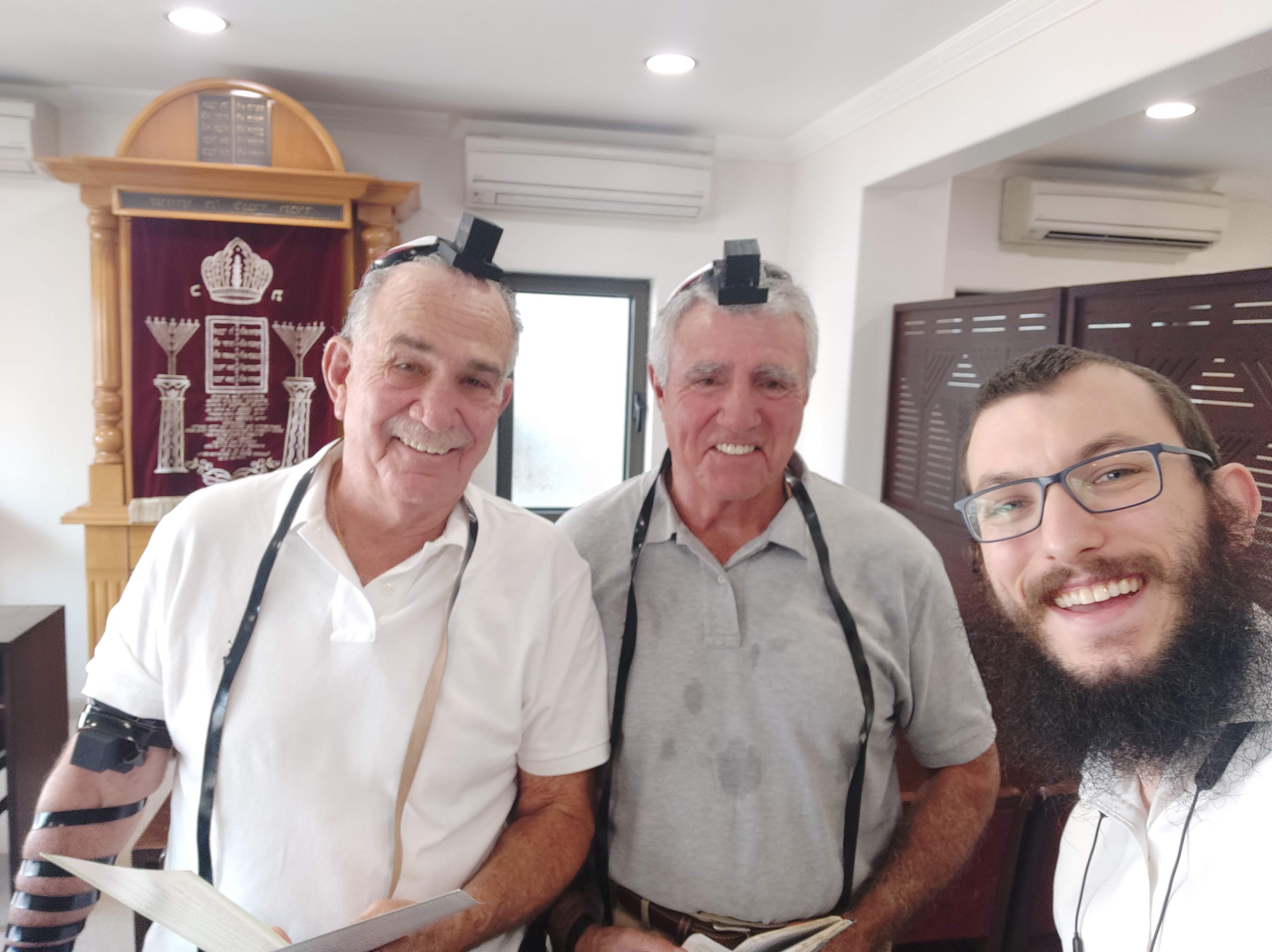
Do you have a food shortage?
"There's no food shortage yet, although it's not unlikely that there soon will be. For now, there's mainly a shortage of food products, and we're relying on the bare minimum. Unfortunately, the restaurant is also closed now, and people can't come and eat there, but we're continuing to supply kosher food to those who need it, because we're the only place in the city offering kosher food. We can't leave people without support."
The main difficulty, according to him, is primarily economic. "Our operations rely 100% on donations from people who pass by, and now there are hardly any people passing by at all. There's also sadness that our daily activities have almost entirely ceased. For example, our Shabbat meals where we usually hosted between 40 to 100 guests have become limited to just the family. At first, it was wonderful; the children so enjoyed having their mom and dad, and they could talk to them about the weekly Parsha and tell stories, rather than always focusing on guests. But then we started missing the 'normal' life we had before. We're really waiting for the moment we can return to full activities, like before."
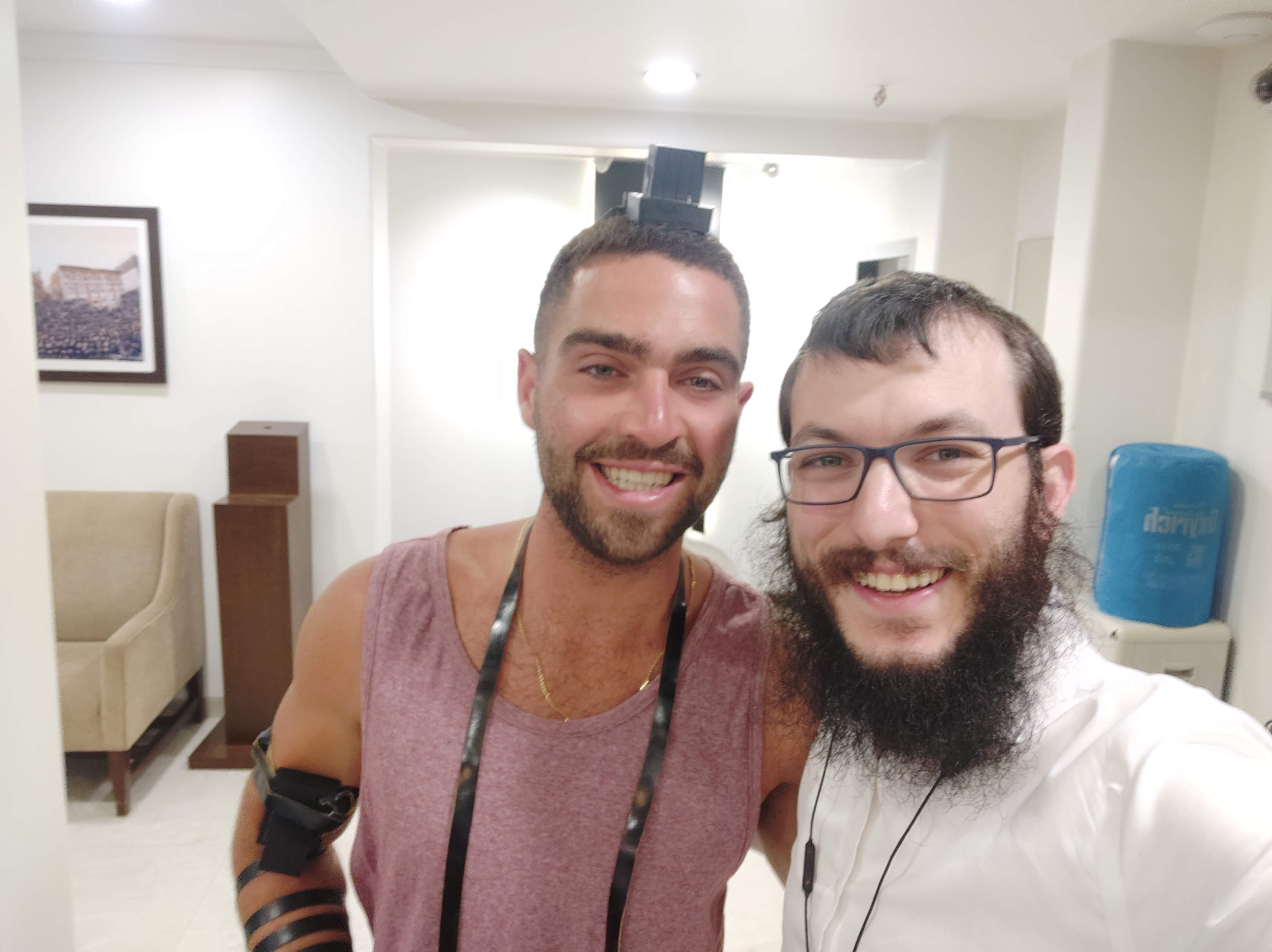
Kozlovsky notes, regretfully, that there's a significant decrease in the scope of their activities. "Although we have much more activity regarding life-saving and also financial support for community families, which are practically collapsing, our regular and routine activities have nearly ceased. Sadly, people from our community continually pass away, and recently four people from our close circle passed. The constant fear is that the numbers will rise, and that people will not receive answers from hospitals, as we already see is happening."
Aren't you considering returning to Israel until the threat passes?
"At this stage, we are not considering it," he confidently replies. "We were sent on a mission and will return to Israel only when it ends. Of course, we constantly consult and don't intend to risk our lives to remain in Mumbai." He pauses for a moment, and the chickens' clucking can be heard behind him, indicating that his hands are full. "As long as there are Jews here and we can continue the mission – we continue. Thank Hashem, we have incredible divine protection, and He does not forget us."

